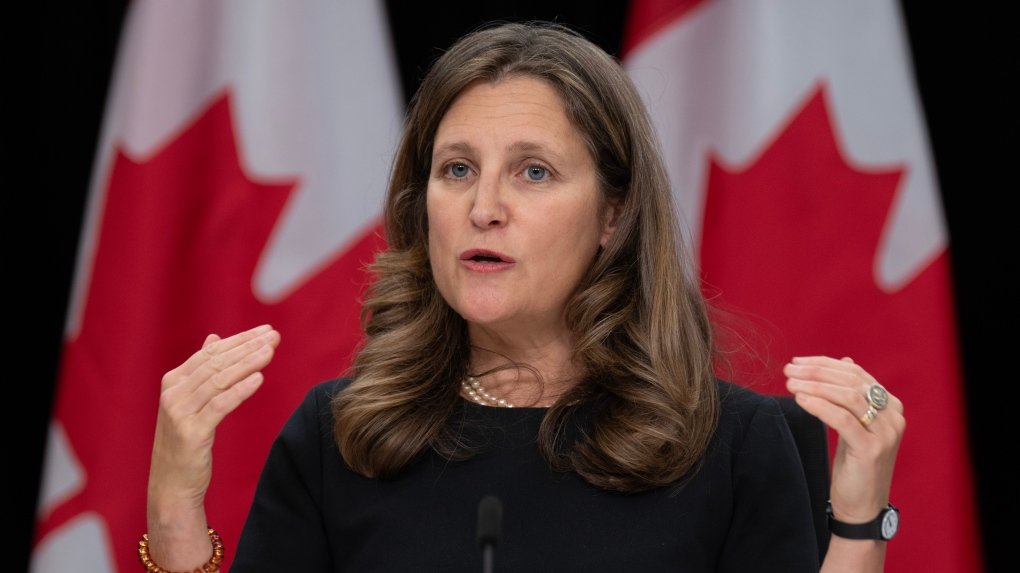Canada’s Finance Minister, Chrystia Freeland, is set to present a fall economic update on Tuesday, which is anticipated to include billions in loans for increasing housing supply and tax reforms targeting short-term rentals, while maintaining a tone of fiscal restraint. This update is not expected to be a large spending package or a “mini-budget”, as has been the case with previous Liberal fiscal updates.
Instead, the update is being described as a “very focused” and “slim” review of Canada’s finances and the government’s plans for job creation and economic growth. It is also expected to continue the Liberals’ current focus on addressing affordability and reflect the need for careful spending decisions.
Prime Minister Justin Trudeau has acknowledged the current financial difficulties faced by Canadians and promises that the update will include measures to address these issues. “We’re stepping up massively on housing… We’re also moving forward on jobs and careers with a green industrial strategy,” Trudeau said.
The financial document is confirmed to include the following measures:
- $15 billion in 10-year, low-interest loans to build an additional 30,000 rental housing units across Canada through the Canada Mortgage Housing Corp. (CMHC);
- Tax reforms targeting short-term rentals such as AirBnb and Vrbo properties, disallowing property owners from claiming income tax deductions on rental expenses for their short-stay properties in regions where short-term rental restrictions are in place, starting in 2024;
- A $1-billion fund focused on housing affordability to support the construction of more homes;
- New mortgage guidance for lenders regarding homeowner renewals; and
- An update on pre-committed clean technology measures, including the investment tax credit for carbon capture.
Finance Minister Chrystia Freeland is set to present a crucial fall economic update amidst challenging political times for the Liberals, with Trudeau trailing behind Conservative Leader Pierre Poilievre and national sentiments of feeling less financially secure than a year ago. The update is expected to demonstrate the Liberals’ understanding of Canadians’ economic concerns and their ability to address cost-of-living constraints.
However, with Freeland emphasizing fiscal restraint, it remains to be seen how much new funding the Liberals can responsibly introduce in this update without further fueling inflation and interfering with the Bank of Canada’s interest rate efforts.
Former federal finance minister John Manley commented on the challenges Freeland faces, including housing shortages, pressure from the NDP on a pharmacare program, and numerous spending requests from other ministers, all while interest rates are rising.
Freeland may opt to incorporate policy-based and promised legislative changes into the update, rather than new money announcements, as a way to reassure Canadians that the federal government plans to support them through these economically uncertain times. This approach would likely continue to highlight Canada’s position as having the lowest debt-to-GDP ratio in the G7.
In anticipation of the update, the federal NDP has indicated a desire for new spending focused on affordability, while the federal Conservatives are calling for a path back to balanced books. The Conservatives predict that Freeland’s presentation will be “more of the same inflationary spending, housing photo-ops and promises and glitzy deficits.”


Be First to Comment